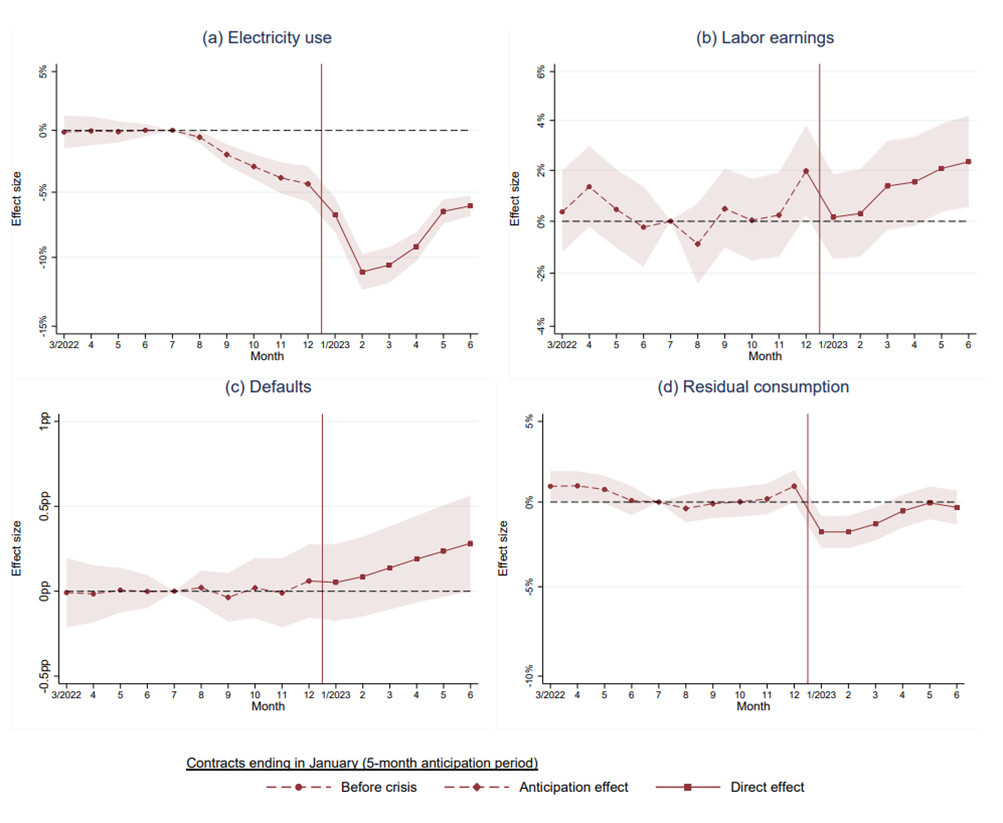We also study anticipation: some households knew their contracts would end later in the crisis.
They started cutting electricity use early—likely via energy-saving investment. When contracts ended abruptly due to retailer bankruptcy, we see no such effect /6
They started cutting electricity use early—likely via energy-saving investment. When contracts ended abruptly due to retailer bankruptcy, we see no such effect /6

Comments
- Low-income: low demand elasticity, little earnings adjustment, big drop in other spending and higher default risk
- High-income: able to cut electricity use more, small drop in other spending, no rise in defaults /7
Each bar height is the static effect—how much the bill increases for each income group. The colors reflect all the response channels. /8
As a result they (iv) have higher default risk and (v) must reduce residual consumption further /9
More in the paper. We're happy to hear your thoughts and comments!
The CEPR working paper is found here: https://cepr.org/publications/dp19972
Ungated version is here:
https://drive.google.com/file/d/1ZBJokwrA-nvaMRQH47WojYDoGjKeLmHr/view